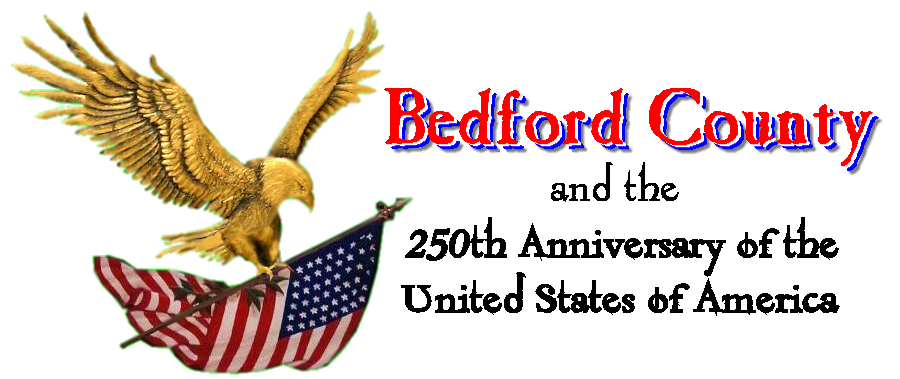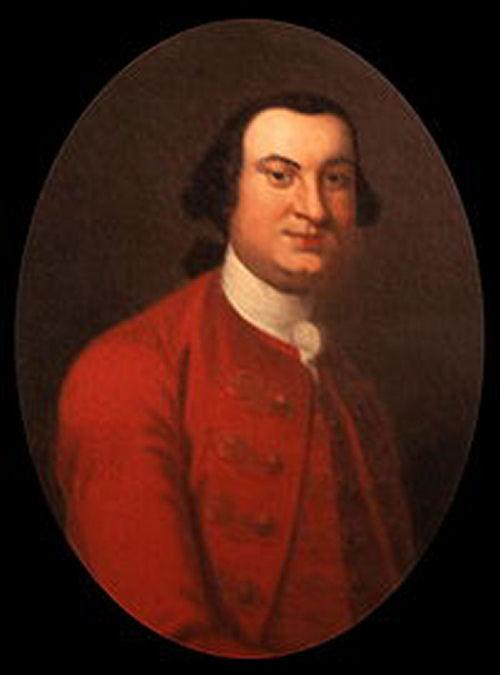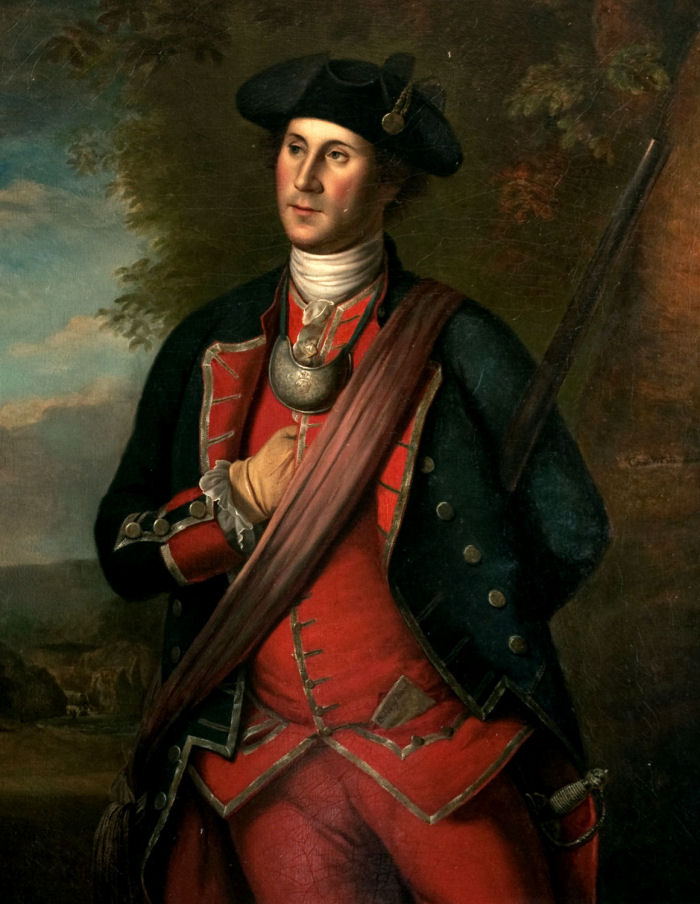



![]() In the Twenty-First Century, we tend to think of George Washington almost as if he were not human. Our selective memory often treats Washington as a demi-god who did no wrong. Beginning with the Colonial Revival in the early 1900s, stories such as 'George as a young boy cutting down his father's cherry tree, then confessing because he could tell no lie,' were introduced into the American conscience. Although many stories, like the one about the cherry tree, have been proven to be simply fabrications by newspaper editors to sell more of their papers, the sentiments have lingered and are hard to dispel. So although we today take great pride in George Washington having spent some time in the region that we call home, we must be aware that he, and the people with whom he interacted, did not see the aura of greatness surrounding him that we do. He was perhaps viewed by others, including Colonel Bouquet, as a fine army officer. But George Washington, in 1758, while he may have been a bit more skilled and accomplished than certain other Provincial soldiers, was still that: a Provincial army officer ~ which meant that the regular British Army officers felt he was inferior to them. Despite our perfect 20/20 hindsight, it must be remembered that George Washington, in the year 1758, was not the national hero that he was at the end of the American Revolutionary War. In 1758 he was a thorn in General John Forbes' side, and Colonel Henry Bouquet intended to reduce that pain a little by persuading Washington that the new route to Fort Duquesne was the best route. The meeting that would take place between Bouquet and Washington along the Cumberland Road would not be Henry Bouquet's audience with a demigod; it would be a (perhaps heated at times) meeting between two flesh and blood men.
In the Twenty-First Century, we tend to think of George Washington almost as if he were not human. Our selective memory often treats Washington as a demi-god who did no wrong. Beginning with the Colonial Revival in the early 1900s, stories such as 'George as a young boy cutting down his father's cherry tree, then confessing because he could tell no lie,' were introduced into the American conscience. Although many stories, like the one about the cherry tree, have been proven to be simply fabrications by newspaper editors to sell more of their papers, the sentiments have lingered and are hard to dispel. So although we today take great pride in George Washington having spent some time in the region that we call home, we must be aware that he, and the people with whom he interacted, did not see the aura of greatness surrounding him that we do. He was perhaps viewed by others, including Colonel Bouquet, as a fine army officer. But George Washington, in 1758, while he may have been a bit more skilled and accomplished than certain other Provincial soldiers, was still that: a Provincial army officer ~ which meant that the regular British Army officers felt he was inferior to them. Despite our perfect 20/20 hindsight, it must be remembered that George Washington, in the year 1758, was not the national hero that he was at the end of the American Revolutionary War. In 1758 he was a thorn in General John Forbes' side, and Colonel Henry Bouquet intended to reduce that pain a little by persuading Washington that the new route to Fort Duquesne was the best route. The meeting that would take place between Bouquet and Washington along the Cumberland Road would not be Henry Bouquet's audience with a demigod; it would be a (perhaps heated at times) meeting between two flesh and blood men.
![]() Henry Bouquet first suggested a face to face meeting in a letter he sent to Washington dated 27 July 1758. He stated: "I come now to the most important article the determination of a Road. . . I desire to have an Interview with you at the houses built half Way betwixt our Camps. . . We Shall I hope be able between you and I, to determine what is most eligible: and Save to the General [Forbes] trouble and loss of time in inquiring upon the Same Subject" Bouquet suggested meeting the following Saturday because General Forbes was still in eastern Pennsylvania: "I hear that he was Still at Carlisle on Sunday, a little Indisposed. . . Therefore if we meet Saturday 29th Instt we have time enough." Colonel Washington replied on the 28th: As I shall have the great satisfaction of seeing you to morrow. . ."
Henry Bouquet first suggested a face to face meeting in a letter he sent to Washington dated 27 July 1758. He stated: "I come now to the most important article the determination of a Road. . . I desire to have an Interview with you at the houses built half Way betwixt our Camps. . . We Shall I hope be able between you and I, to determine what is most eligible: and Save to the General [Forbes] trouble and loss of time in inquiring upon the Same Subject" Bouquet suggested meeting the following Saturday because General Forbes was still in eastern Pennsylvania: "I hear that he was Still at Carlisle on Sunday, a little Indisposed. . . Therefore if we meet Saturday 29th Instt we have time enough." Colonel Washington replied on the 28th: As I shall have the great satisfaction of seeing you to morrow. . ."
![]() Something must have arisen to prevent their meeting on the 29th, because the two colonels actually met on 30 July 1758. Colonel Washington wrote to Gabriel Jones on the 29th and told him: "Tomorrow I am summon'd to a conference with Col. Bouquet on the Ray's Town Road. . ."
Something must have arisen to prevent their meeting on the 29th, because the two colonels actually met on 30 July 1758. Colonel Washington wrote to Gabriel Jones on the 29th and told him: "Tomorrow I am summon'd to a conference with Col. Bouquet on the Ray's Town Road. . ."
![]() The meeting took place in one of the log blockhouses built midway between Bedford and Cumberland. It can be assumed that the meeting lasted only through the one day because Bouquet wrote to Forbes on the 31st from his camp at Raystown. Bouquet informed General Forbes: "I had an interview with Colonel Washington to find out how he imagines these difficulties can be overcome. I learned nothing satisfactory. Most of these gentlemen do not know the difference between a party and an army, and find every thing easy which agrees with their ideas, jumping over all the difficulties."
The meeting took place in one of the log blockhouses built midway between Bedford and Cumberland. It can be assumed that the meeting lasted only through the one day because Bouquet wrote to Forbes on the 31st from his camp at Raystown. Bouquet informed General Forbes: "I had an interview with Colonel Washington to find out how he imagines these difficulties can be overcome. I learned nothing satisfactory. Most of these gentlemen do not know the difference between a party and an army, and find every thing easy which agrees with their ideas, jumping over all the difficulties."
![]() Despite both George Washington's and Henry Bouquet's habits of meticulously keeping copies of the letters they sent, if they did not record an event in one of those letters, we have no record of it. Also, this was the frontier and recording secretaries were seldom an integral part of meetings and conferences between army officers. In most cases we have only a partial record of what took place at a meeting; the main topic might be later mentioned or alluded to in a letter. And such is the case in regard the meeting between Bouquet and Washington along the Cumberland Road.
Despite both George Washington's and Henry Bouquet's habits of meticulously keeping copies of the letters they sent, if they did not record an event in one of those letters, we have no record of it. Also, this was the frontier and recording secretaries were seldom an integral part of meetings and conferences between army officers. In most cases we have only a partial record of what took place at a meeting; the main topic might be later mentioned or alluded to in a letter. And such is the case in regard the meeting between Bouquet and Washington along the Cumberland Road.
![]() Ultimately, General Forbes' decision was unchanged: the cutting of a new road would continue from Raystown over the Allegheny Front, entirely within the Pennsylvania colony.
Ultimately, General Forbes' decision was unchanged: the cutting of a new road would continue from Raystown over the Allegheny Front, entirely within the Pennsylvania colony.
